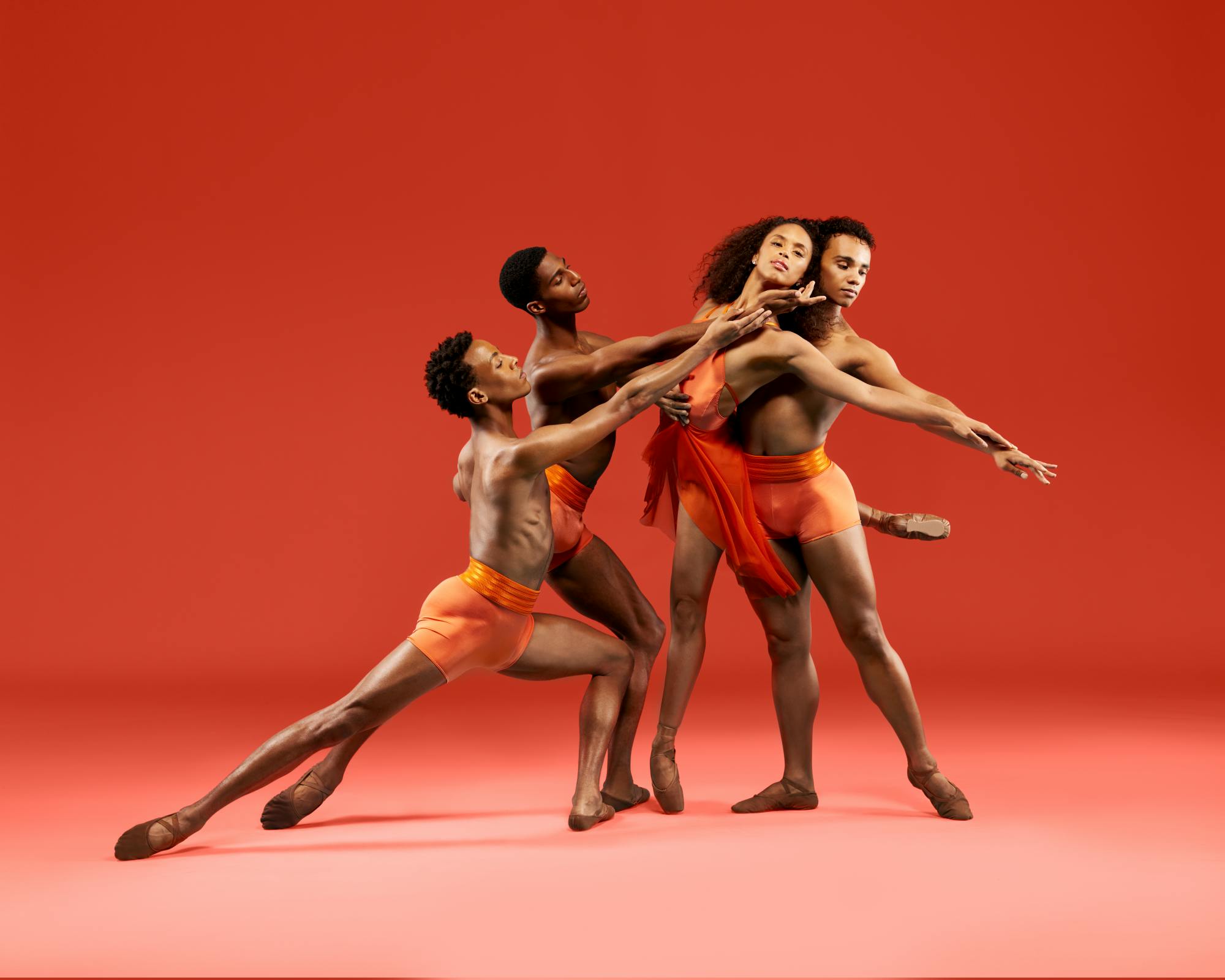This summer marks the last year of Dance Theatre of Harlem’s three-year residency at the Hopkins Center for the Arts. The collaboration, which began in 2020, has included master classes, pop-up shows, collaboration with theater classes, a visit to the Hood and previews of The Hazel Scott Project, which developed over the course of the past three summers.
The Dance Theatre of Harlem’s in-person interactions with the Dartmouth community have primarily occurred this summer, as it is the first time that all the dancers have been able to live and work in Hanover due to the pandemic. According to founding member and artistic director Virginia Johnson, engaging with the Dartmouth community is a vital part of the dance company’s presence on campus — in addition to their classes and rehearsals.
“We interact with the students, which is really a wonderful thing and this is an important part of the residency — that we are doing our regular work but that we also get a chance to interface with Dartmouth students in different ways,” Johnson said.
Pop-up shows around campus — including on the Green, Collis patio and the Hop plaza — are an innovative way for company members to connect with Dartmouth students. They engage with students by teaching simple movements and encouraging them to participate.
“[The pop-up shows are] to give the students here at Dartmouth the chance to do some of what we do, to interact with us on a one-to-one basis,” Johnson said.
Students also had the opportunity to learn from Dance Theatre of Harlem dancers through a master class series at the Hop taught over the course of three Wednesdays in July and early August. Students learned from professional dancers including Virginia Johnson, Derek Brockington and Ingrid Silva.
“I really think the master classes are a great way to learn,” said Camille Dizon, a dancer from the Lebanon Ballet School who attended the third master class. “It’s a lot different than what I normally do day-to-day, and just seeing the different styles that come out of different teachers.”
Three classes — two held at the Hop Garage and one at the White River Ballet Academy — were geared toward students of varying skill levels. Despite their focus on classical ballet technique, some students said they felt that the classes differed from other ballet classes they have taken.
“I really enjoyed how passionate [Silva] seemed about dance,” Dizon said. “A lot of my movement is very strict and very technique-based, and it felt a lot more free and more focused on the movement in this class.”
Attendees of an artistic encounter at the Hood Museum last Thursday witnessed four Dance Theatre of Harlem dancers responding to the “Drawing Lines” exhibit. The artistic encounter — held in the Hood Atrium — expressed the dancers’ interpretation of the exhibit.
“These are visual artists who are expressing line in really interesting ways,” Johnson said. “My idea was to expose a group of dancers to the exhibition and see what comes from them.”
The artistic encounter also included two choreographed dances, two improvisational pieces and a Q&A with the dancers, in which they provided attendees with insight into their creative process.
“We’ve mostly been talking to [Johnson]…she’s telling us about their process, how they do things,” Kai Lord ’23 said. “It’s surprisingly dancer-based, like the performance they did in the Hood Museum was pretty much all their choreography. She gave them free reign. It’s interesting to see how there’s a lot of control the dancers get.”
Creative collaboration among Dance Theatre of Harlem dancers and Dartmouth students and faculty has also been the focus of a theater summer course for the past three summers. The course combines theater and dance, focusing on the dance company’s storytelling through ballet and on developing performance works.
“We’re learning a lot of dance history and Black history through dance, which is super cool,” Lord, a student in the class, said. “Another third is actual movement. [Professor] John Heginbotham teaches some contemporary ballet moves but then also has us choreograph based off of our experiences…The last third is with Dance Theatre of Harlem, we watch some of their stuff, watch their rehearsals, talk to them.”
According to Johnson, the course played a role in developing the ballet “Sounds of Hazel,” which previewed at the Hop on Thursday and Friday, August 5-6. Choreographed by Tiffany Rea-Fisher, the ballet honors the life and legacy of classical and jazz piano virtuoso Hazel Scott. During summer 2020 — the first time that the class ran — the course researched Scott as an artist and an activist. Students conducted a traditional exploration of the biographical aspects of her life, providing background for the ballet. Work on the choreography started later that summer.
Last summer — the second year of the course — a handful of Dance Theatre of Harlem dancers visited for three days and collaborated with the class to build a performance based on the play “The Purple Flower” by Marita Bonner. Interactions of this kind continued this summer under the direction of professors John Heginbotham and Monica White Ndounou, although the course’s focus differed from previous summers.
“There is a little bit of Hazel Scott still as part of it, but I think the course this summer is more about narratives through movement, so it’s more open-ended,” Johnson said. “It’s really more focused on dance, how dance can tell stories.”
Dance Theatre of Harlem’s goal of storytelling through dance is reflected in all of its projects, aiming to encourage meaningful discussions among the community and dancers.
“I think it’s been really nice being here at Dartmouth, because the quality of inquiry is very stunning,” Johnson said. “The students… have a way of looking at the world that is not just ‘give me the facts.’ You’re interested and engaged, and you’re curious. And that’s been really exceptional.”




